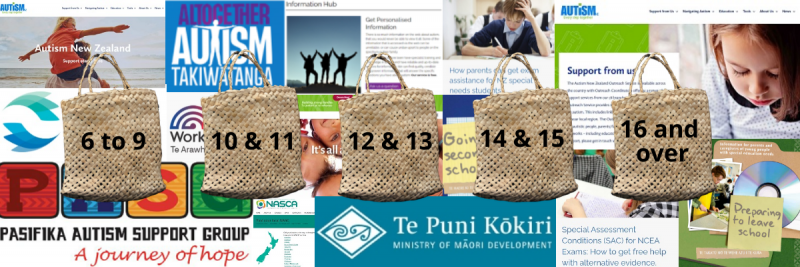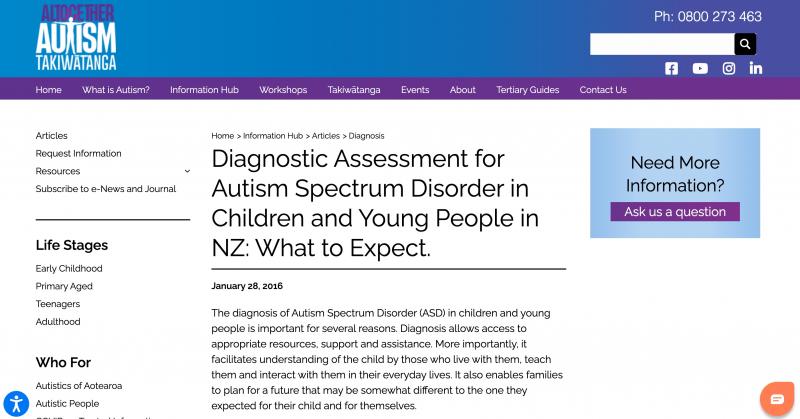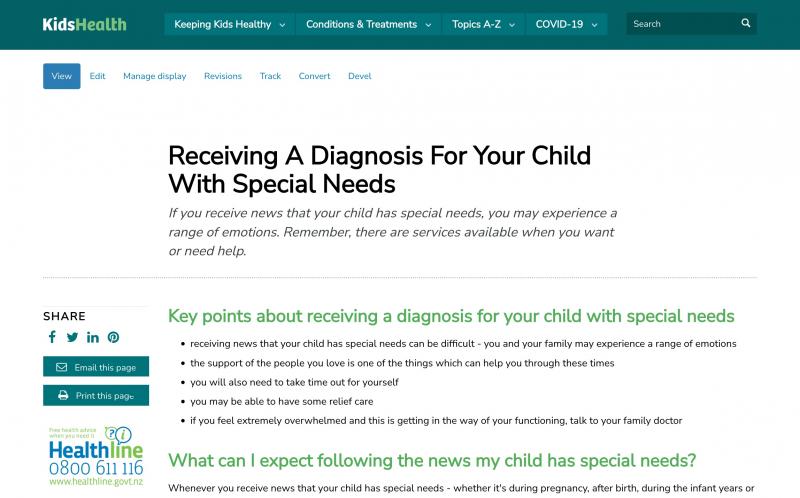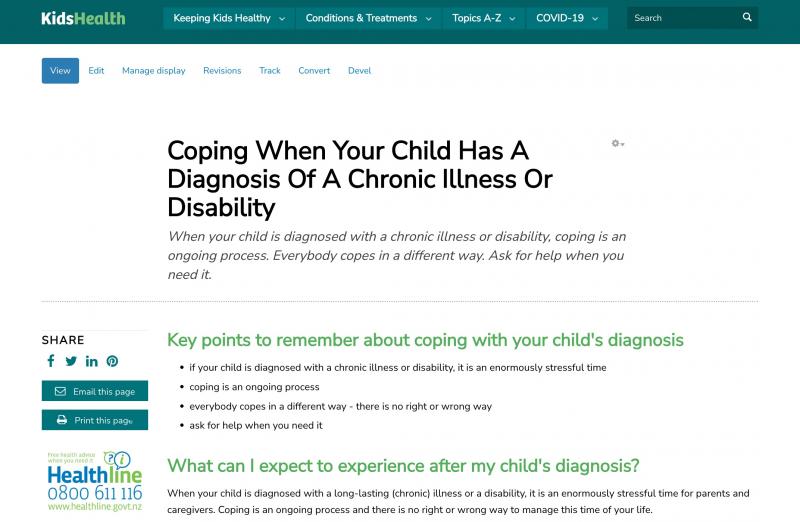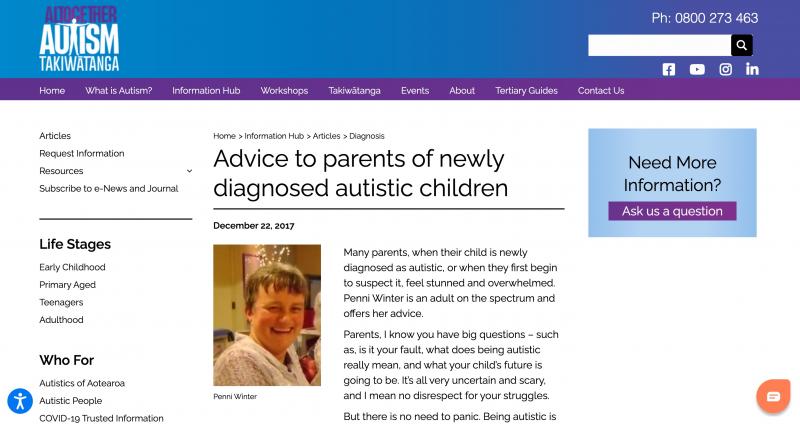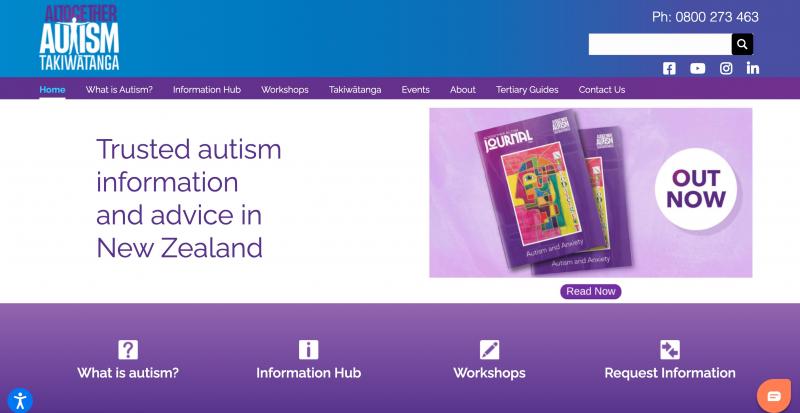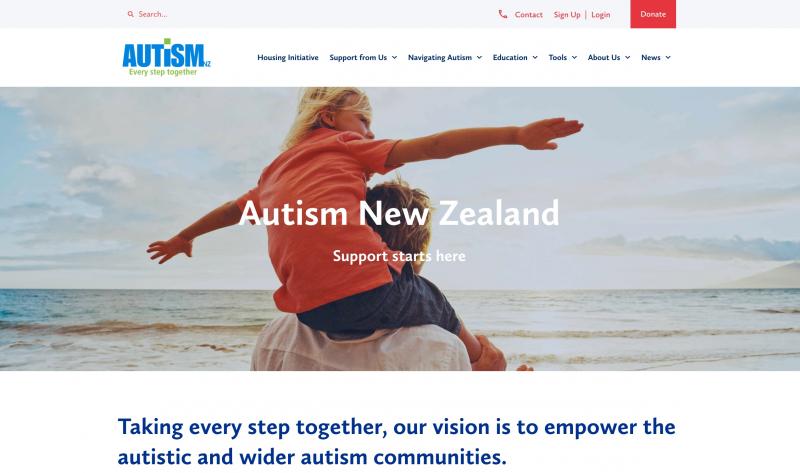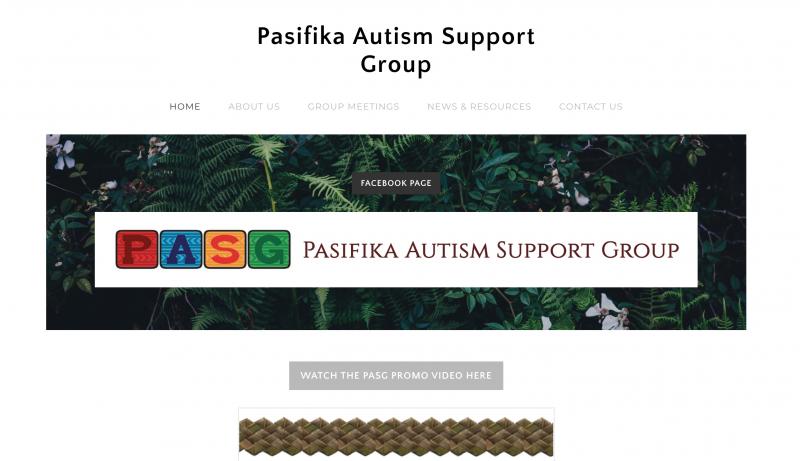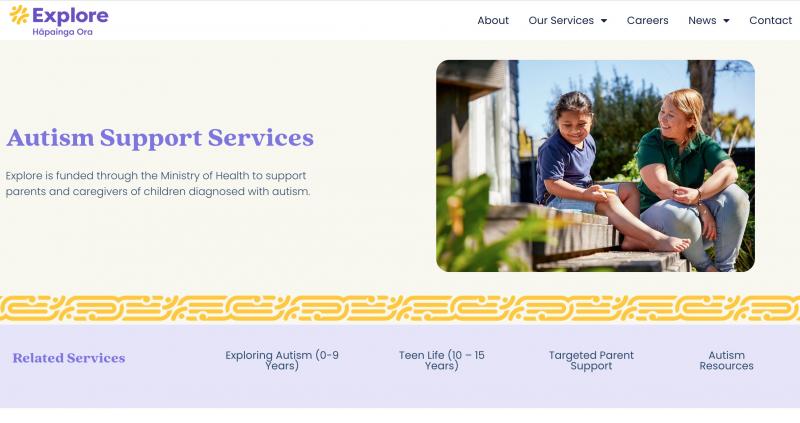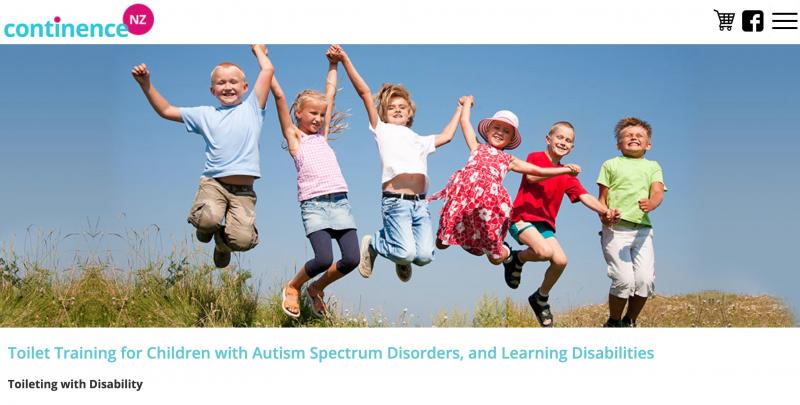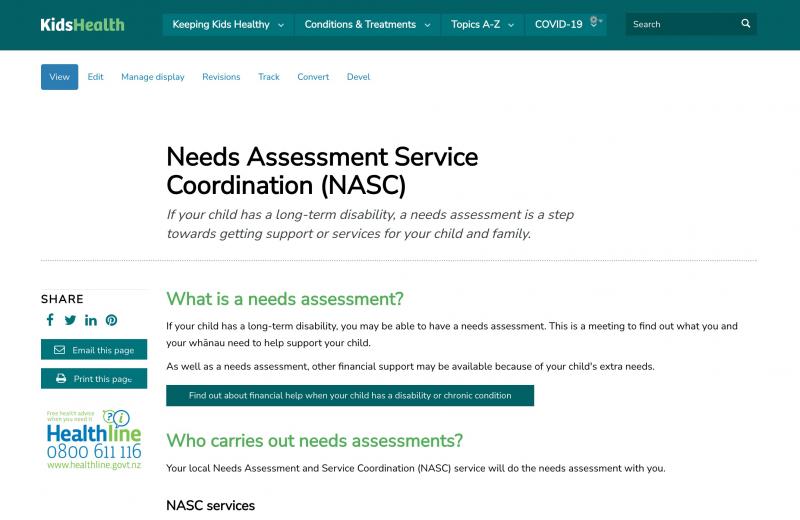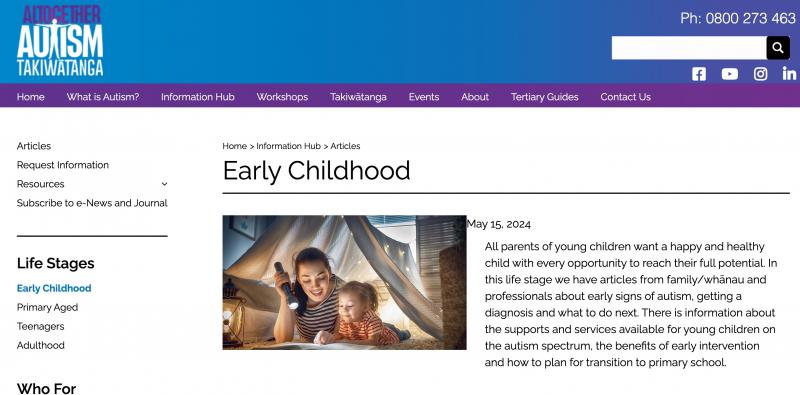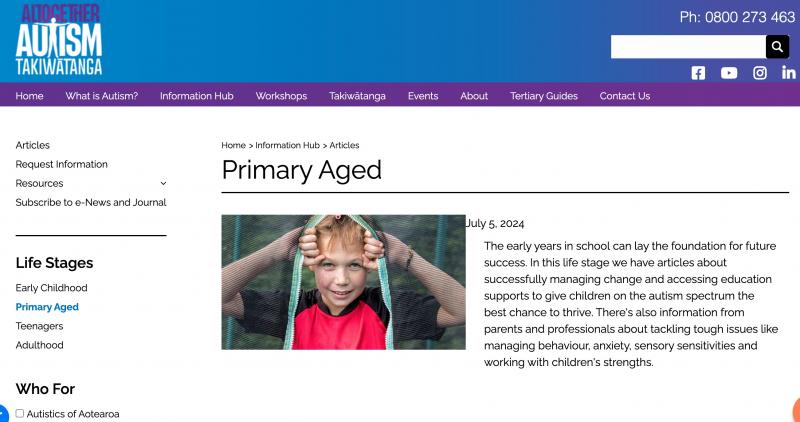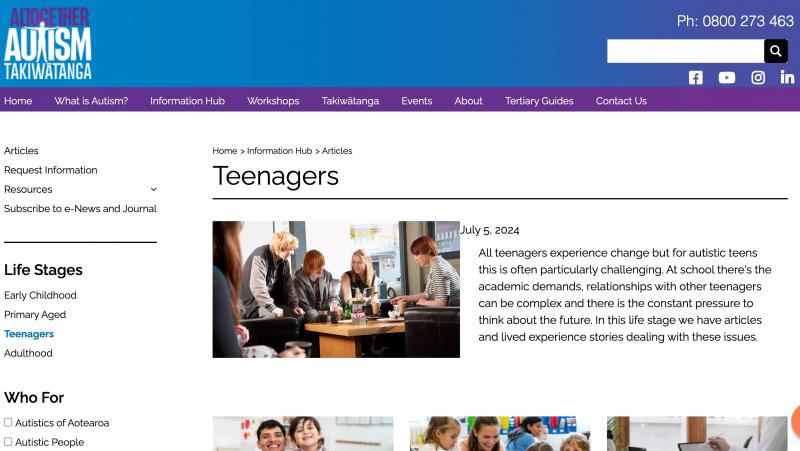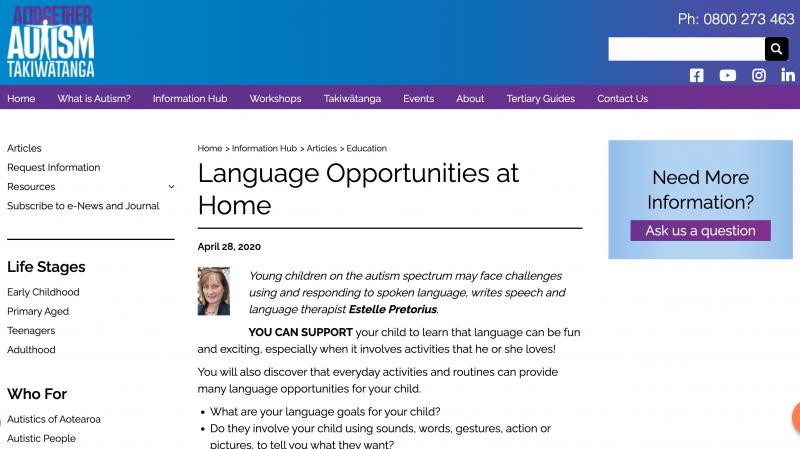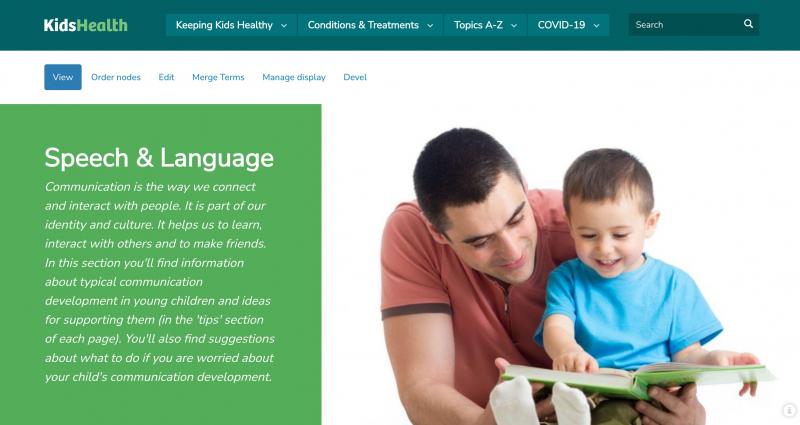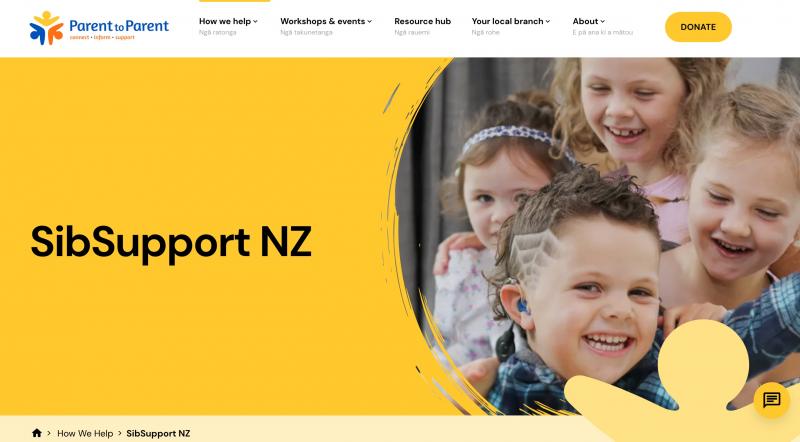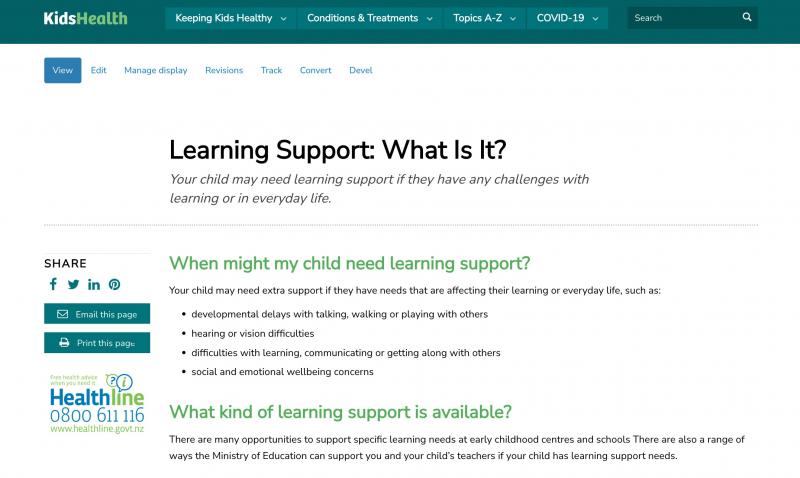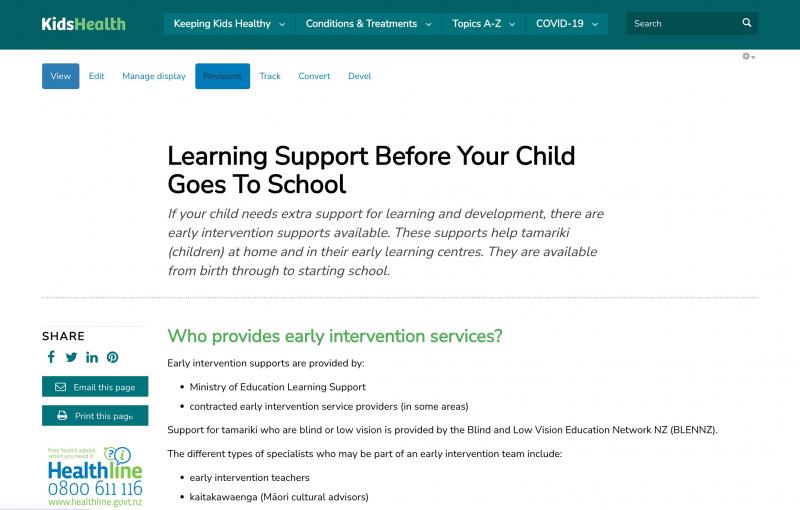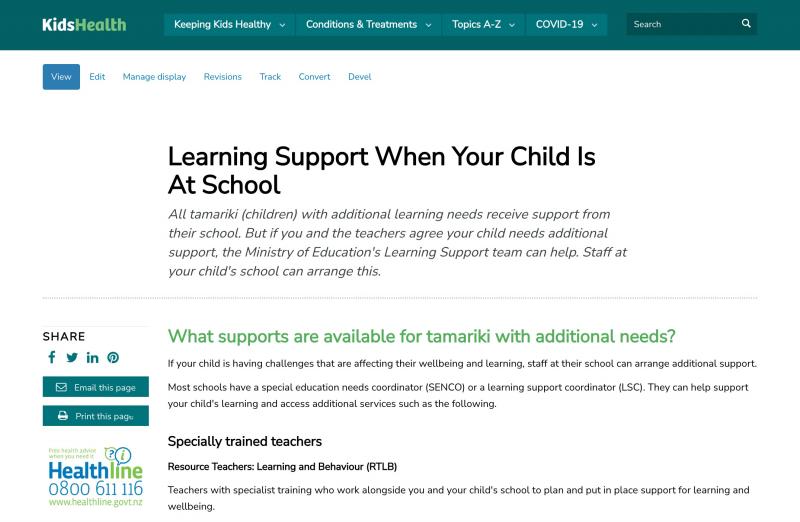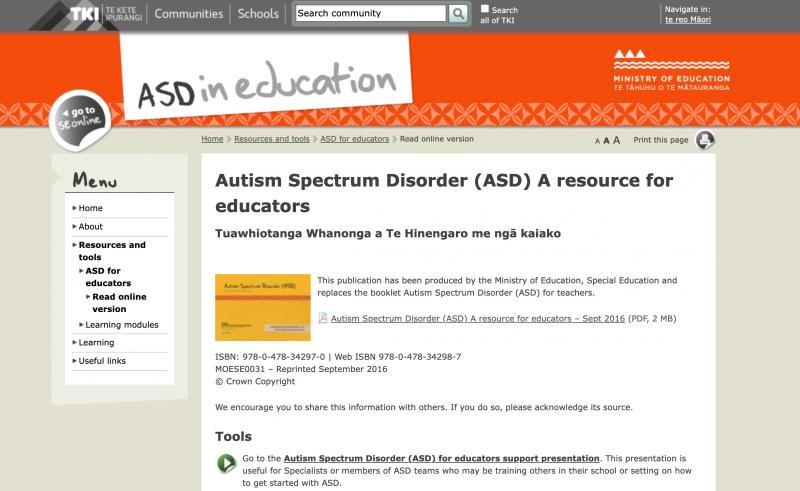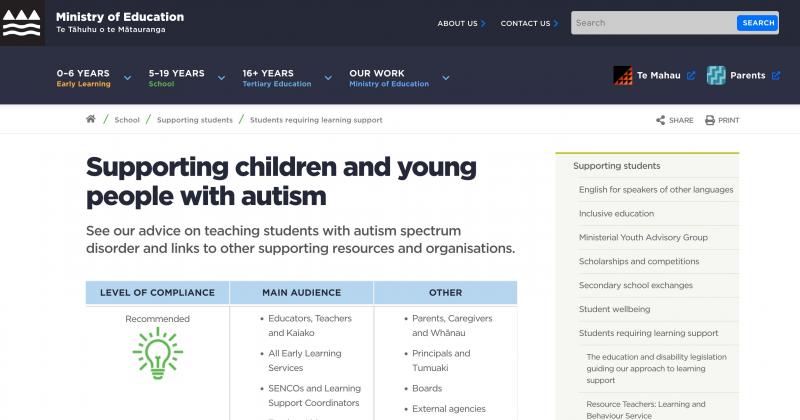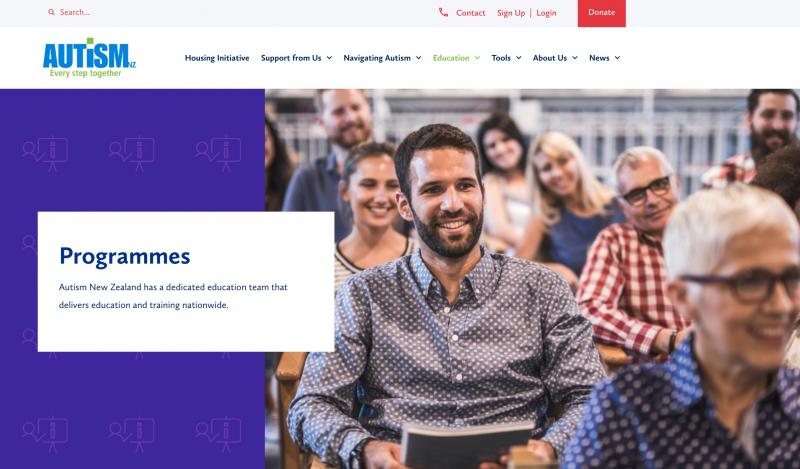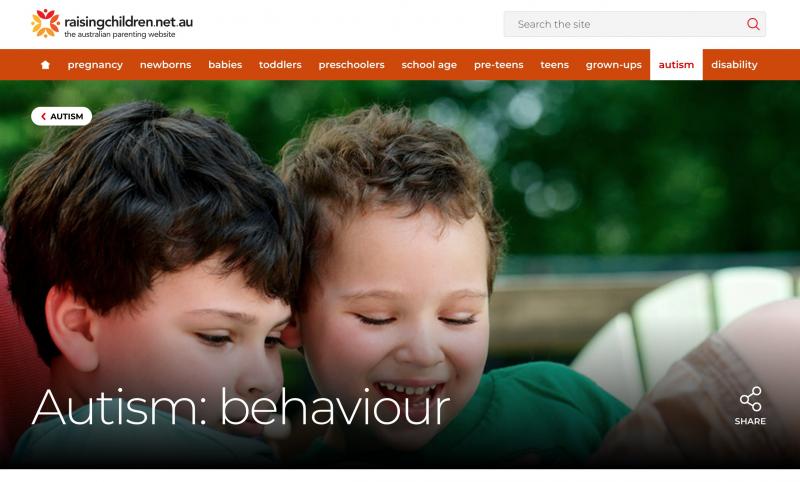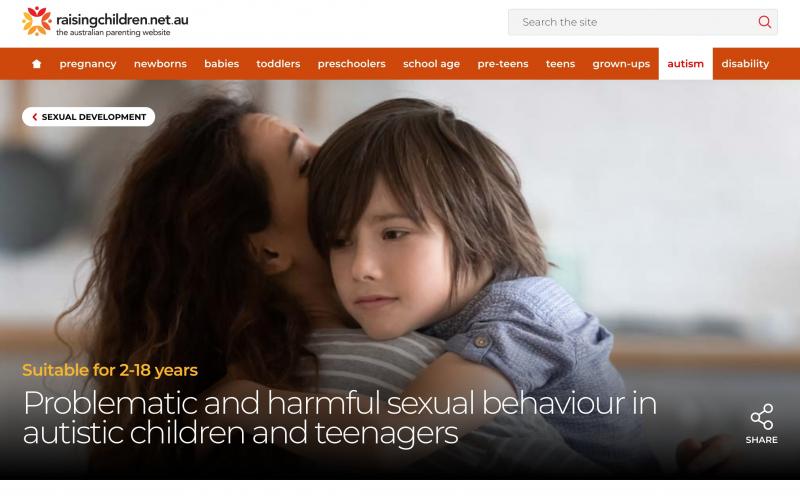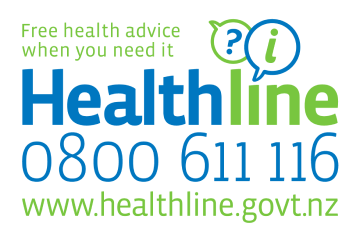Autism-Takiwātanga Support & Resources In Aotearoa NZ
Autism-Takiwātanga Support & Resources In Aotearoa NZ
A listing of New Zealand organisations, resources and support available for parents and whānau (family) of tamariki (children) and rangatahi (young people) with autism-takiwātanga.
Autism-takiwātanga support and resources by age group
KidsHealth has information on autism-takiwātanga supports and resources for each age group.
Whānau of tamariki with autism-takiwātanga sometimes find they want to use different support services at different stages of their child's life and development.
This KidsHealth page leads to 5 separate pages with resources and information for 5 different age groups. The kete represent the different age groups. The guiding principle behind these kete is that of rangatiratanga - to enable whānau to have control over their own health and wellbeing.
See all the KidsHealth content on autism-takiwātanga
Diagnosis of autism-takiwātanga and soon after
Diagnostic assessment for ASD in NZ: What to expect | Altogether Autism
The diagnosis of autism spectrum disorder (ASD) in tamariki and rangatahi is important for several reasons. Diagnosis allows access to appropriate resources, support and assistance. More importantly, it aids the understanding of the child by those who live with them, teach them and interact with them in their everyday lives. It also enables whānau to plan for a future that may be somewhat different to the one they expected for their child and for themselves.
About Autism Booklet | Parent to Parent
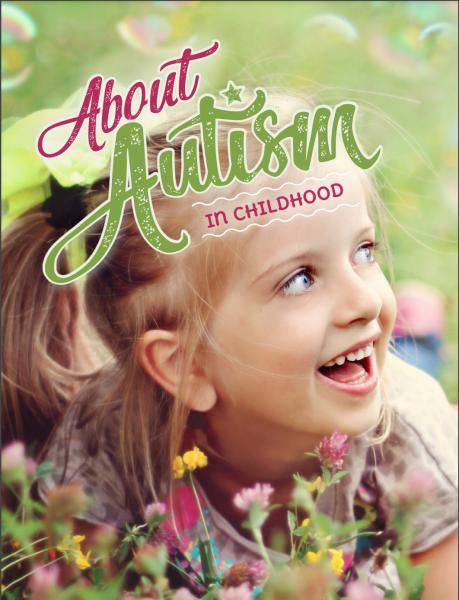
Parent to Parent have a 44-page booklet (PDF, 4.14MB) for those with tamariki who have recently had a diagnosis of ASD. Sections in the booklet include:
- About ASD
- What it looks like
- The senses and ASD
- Common difficulties
- Strengths and abilities
- Causes and prevalence
- Diagnosis
- Disclosing the diagnosis
- Where to from here? (NASC)
- Strategies and interventions
- Positive behaviour support and techniques
- Alternative and augmentative communication tools
- Strategies at home
Receiving a diagnosis for your child with special needs | KidsHealth
Whenever you receive news that your child has special needs, it can be distressing and can lead you and your whānau to experience a range of emotions. You may feel shock, anger, denial, fear, guilt, sadness, and helplessness. This is normal. The future can be unknown and planning ahead can be difficult. Remember, there are services to help when you want or need help. See the KidsHealth page for more information.
Coping when your child has a diagnosis of a chronic illness or disability | KidsHealth
When your child is diagnosed with a chronic illness or disability, coping is an ongoing process. Everybody copes in a different way. Seek support when you need it. See the KidsHealth page for more information.
Advice to parents of newly diagnosed autistic children | Altogether Autism
Many parents, when their child is newly diagnosed as autistic or when they first begin to suspect it, feel stunned and overwhelmed. Penni Winter is an adult on the spectrum and offers her advice.
Autism-takiwātanga support groups
Altogether Autism
Autism New Zealand
Pasifika Autism Support Group
Other support and assistance for your child with autism-takiwātanga
Autism Services | Explore - Hāpainga Ora
Explore supports parents and caregivers of tamariki diagnosed with autism-takiwātanga. For information about their services, see their website or call 0800 605 001.
- Exploring Autism 0 to 9 years
- Autism Service for Teens 10 to 15 years
- Targeted Parent Support 0 to 18 years
- Autism Resources in New Zealand
Toilet training for children with autism-takiwātanga | Continence NZ
Tamariki with autism-takiwātanga are more likely to have bowel difficulties, ranging from loose poos to constipation.
When toilet training tamariki with autism-takiwātanga it is important to have a plan, be consistent and patient, give calm responses and praise desired behaviours. Continence NZ provides information and resources.
Needs Assessment Service Coordination (NASC) | KidsHealth
If your child has autism-takiwātanga, a needs assessment is the first step towards identifying what needs your child may have and what outcomes you want from the process. Service coordination is the process of working with you to explore how best to organise the support you need to help your child be as independent as possible. Support to meet your child's needs may come from whānau and friends, community agencies and resources, or from government-funded services.
Financial help when your child has a disability or chronic condition | KidsHealth
Different kinds of financial support may be available. Talk to your health professional, social worker, or NASC (Needs Assessment Service Coordination) service about which allowances you may be able to receive.
Autism-takiwātanga by age and stage
Autism in early childhood | Altogether Autism
All parents of young tamariki want a happy and healthy child with every opportunity to reach their full potential. In this life stage, Altogether Autism has articles from whānau and professionals about early signs of autism, getting a diagnosis and what to do next. There is information about the supports and services available for young tamariki on the autism spectrum, the benefits of early intervention and how to plan for transition to primary school.
Autism in primary school aged children | Altogether Autism
The early years in school can lay the foundation for future success. In this life stage, Altogether Autism has articles about successfully managing change. There's information on accessing education supports to give tamariki on the autism spectrum the best chance to thrive. There's also information from parents and professionals about tackling tough issues like managing behaviour, anxiety, sensory sensitivities and working with children's strengths.
Autism in teenagers (Altogether Autism)
All rangatahi experience change but for autistic rangatahi this is often particularly challenging. At school there's the academic demands and relationships with other rangatahi can be complex. There is also a constant pressure to think about the future. In this life stage, Altogether Autism has articles and lived experience stories dealing with these issues.
Autism-takiwātanga and language
Language opportunities at home | Altogether Autism
Young tamariki on the autism spectrum may face challenges using and responding to spoken language, writes speech and language therapist Estelle Pretorius. You can support your child to learn that language can be fun and exciting, especially when it involves activities that they love. You will also discover that everyday activities and routines can provide many language opportunities for your child.
Speech and language | KidsHealth
This KidsHealth page has information about typical communication development in young tamariki and ideas for supporting them. You'll also find suggestions about what to do if you are worried about your child's communication development.
Sibling support
Living with a sibling with a disability | Parent to Parent
See the Parent to Parent website for a 2 part video series where siblings from around New Zealand tell their stories of living with a whānau member with a disability. Find out about sibling support groups.
Autism-takiwātanga, education and learning support
Learning Support: What is it? | KidsHealth
Your child may need extra support if they have needs that are affecting their learning or participation in everyday life. See the KidsHealth page for more information.
Learning Support before your child goes to school | KidsHealth
If your child needs extra support for learning and development, there are qualified, experienced people in early intervention services who can work with you. This support is available from birth through to when your child starts school. See the KidsHealth page for more information.
Learning Support when your child is at school | KidsHealth
Most tamariki with additional learning needs receive support from their school. But if teachers decide your child needs extra learning support, the Ministry of Education's Learning Support team can help. Staff at your child's school or early childhood education centre will coordinate extra services. See the KidsHealth page for more information.
ASD - a resource for educators | TKI - Ministry of Education
This resource is for teachers - to give them an introduction to autism spectrum disorder and how it might affect a student in any classroom or school setting. It aims to give a taste of what it might be like to stand in the shoes of a student with ASD and some guidelines on how to incorporate goals for students within The New Zealand Curriculum. Parents may also find it useful.
Supporting children and young people with ASD | Ministry of Education
Providing the right support for students with ASD can significantly change their learning outcomes and their relationships. The Ministry of Education provides advice on teaching students with ASD and links to other supporting resources and organisations.
Education programmes | Autism NZ
Autism NZ has a number of externally evaluated, New Zealand based education programmes for whānau (and professionals). The programmes are delivered by facilitators who are professionals working in the field of autism or parents who have lived experience, with consultation from autistic adults.
Autism-takiwātanga, development and behaviour
Autism: behaviour | Raising Children, Australia
Raising Children is an Australian website that has parenting advice on a range of conditions affecting rangatahi. They have a section on behaviours in tamariki with autism-takiwātanga. It has information and advice for parents and caregivers to help manage different behaviours.
Problematic and harmful sexual behaviour in autistic children and teenagers | Raising Children, Australia
Tamariki and rangatahi with autism-takiwātanga are no more likely to engage in problematic or harmful sexual behaviour than typically developing tamariki and rangatahi. Tamariki and rangatahi with autism-takiwātanga might need help to understand healthy sexual behaviour. The Raising Children website has some great advice for whānau on how they can approach this.
This page last reviewed 11 July 2024.
Do you have any feedback for KidsHealth?
If you have any feedback about the KidsHealth website, or have a suggestion for new content, please get in touch with us.
Email us now